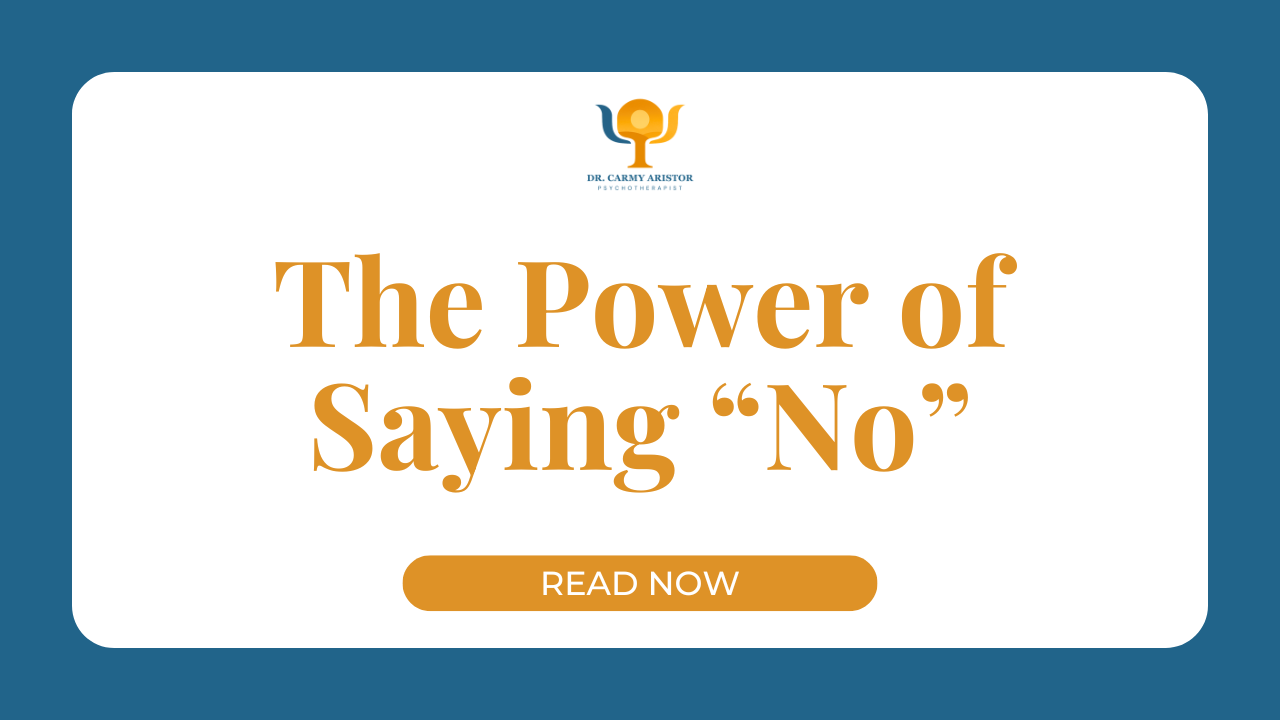The Power of Saying "No"
Oct 10, 2025
For many of us, the word “no” does not come easily. We were taught to say yes: to every project, every meeting, every favor, because that is what makes us “good employees,” “good friends,” or “good leaders.” We were told that saying yes makes us dependable, supportive, and indispensable.
But here is the truth: every yes has a cost. Each time you agree to take on more than you can reasonably handle, you are saying no to something else: your time, your rest, your health, your focus. Over time, that constant overextension becomes a fast track to exhaustion and resentment.
Some people struggle with setting boundaries, not because they do not want to, but because they fear the backlash that comes with pushing back. Yet, the ability to say no is one of the most powerful tools you can develop for both your mental health and your long-term success.

Why Saying No Feels So Hard
- Cultural expectations. Many of us grow up being praised for being helpful, agreeable, and accommodating.
- Workplace pressure. Saying yes feels like the only way to prove your worth or avoid being overlooked.
- Fear of missing out. A no can feel like shutting the door on opportunities or advancement.
- People-pleasing habits. Guilt often follows the idea of letting others down.
The result? People are stretched too thin to show up fully where it matters most.
Redefining “No” as Strength
Saying no does not mean you are difficult, ungrateful, or uncooperative. It means you are intentional. It means you value your time and energy enough to invest them where they make the biggest impact.
Here is how to start building that muscle:
- Pause before responding. Instead of defaulting to yes, take time to evaluate whether the request aligns with your priorities.
- Offer an alternative. A no does not always have to be final. Sometimes it is redirecting to a better resource or suggesting a later timeline.
- Reframe the guilt. Saying no to what drains you is actually saying yes to what matters most.
- Keep it simple. You do not owe anyone a lengthy explanation. A direct “I do not have the capacity for this right now” is enough.
- Protect your yes. When you do say yes, let it be meaningful, not automatic.

The Ripple Effect of Boundaries
When you start saying no with confidence, you not only protect yourself. You give others permission to do the same. You model healthier ways of working, relating, and leading. The result is a culture where people feel empowered to prioritize well-being, focus on what truly matters, and avoid burnout.
Boundaries are not barriers; they are strategies. And every time you practice them, you move closer to a healthier, more sustainable version of success. That is why I created my online course, Helping the Healers, to teach you practical strategies, tools, and guidance to restore your energy, build emotional resilience, and create sustainable self-care habits. Enroll today and take the first step toward a balanced, healthy life.
We are here to help you reclaim your time, your energy, and your peace of mind, starting with the power of no.

